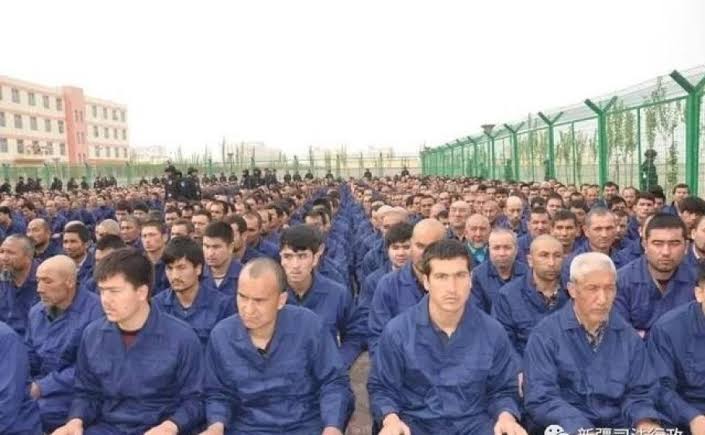China’s policy of forcing Uighurs to work as cheap labor has raised concerns about human rights violations and the complicity of carmakers in the use of forced labor in their supply chains. This includes major carmakers such as Toyota, Volkswagen, Tesla, General Motors, and BYD. Reports from Human Rights Watch (HRW), Sheffield Hallam University’s Helena Kennedy Centre for International Justice, and other organizations have highlighted the risk of car manufacturers using aluminum made by Uighur forced labor in Xinjiang, China. The extensive use of aluminum in the automotive industry, especially in electric vehicles, raises concerns about the presence of forced labor in the supply chain.
According to HRW, car manufacturers have strict human rights standards for auditing their global supply chains but are not applying the same rigorous sourcing rules for their operations inside China. HRW’s investigation alleges that car manufacturers may be using aluminum produced by forced labor in Xinjiang. The concern is based on the link between aluminum smelters in Xinjiang and Chinese government-backed labor transfer programs that coerce Uighurs and other Turkic Muslim communities into jobs in Xinjiang and other regions.
HRW’s report identifies five companies – Toyota, Volkswagen, General Motors, Tesla, and BYD – as having particular concerns over their links to specific factories and companies inside China. HRW’s research relies on Chinese state media, company reports, and government statements available online due to the high level of repression and surveillance in Xinjiang, which makes it impossible for both human rights groups and car companies to conduct credible investigations into allegations of forced labor.
The report also highlights that more than 15% of aluminum produced in China, or 9% of global supply, comes from Xinjiang. Aluminum is used in various automotive parts, including engine blocks, vehicle frames, wheels, and electric vehicle components. The aluminum ingots produced in Xinjiang are often melted down and mixed with other materials in other provinces of China, making it difficult to trace the origin of the aluminum once it enters the supply chain.
The car industry’s demand for aluminum is projected to double between 2019 and 2050, with China benefitting from the increased demand. However, the reliance on Xinjiang’s aluminum production raises concerns about the use of forced labor in the supply chain and the potential for tainted aluminum to enter domestic and global supply chains undetected.
In response to these concerns, as Rights Defenders, we are calling on carmakers to take immediate action to map their supply chains and disengage from any supplier found to source parts or materials from Xinjiang. We also advocate for stricter laws, similar to the U.S. Uyghur Forced Labor Prevention Act, to prevent imports of goods potentially linked to forced labor. This would put the onus on importers to demonstrate that their goods are not linked to forced labor in Xinjiang.
It is important for carmakers to conduct thorough due diligence and ensure responsible sourcing throughout their supply chains to minimize the risk of human rights abuses. It should be noted that governments and consumers also have a role to play in demanding transparency and accountability from automakers and supporting efforts to eliminate forced labor in supply chains.
Sources:
- Forced Labour Lab, Sheffield Hallam University’s Helena Kennedy Centre for International Justice https://www.shu.ac.uk/helena-kennedy-centre-international-justice/research-and-projects/all-projects/forced-labour-lab
- Carmakers may be using aluminium made by Uyghur forced labour, NGO investigation finds
- China: Carmakers Implicated in Uyghur Forced Labor
https://www.hrw.org/news/2024/02/01/china-carmakers-implicated-uyghur-forced-labor

